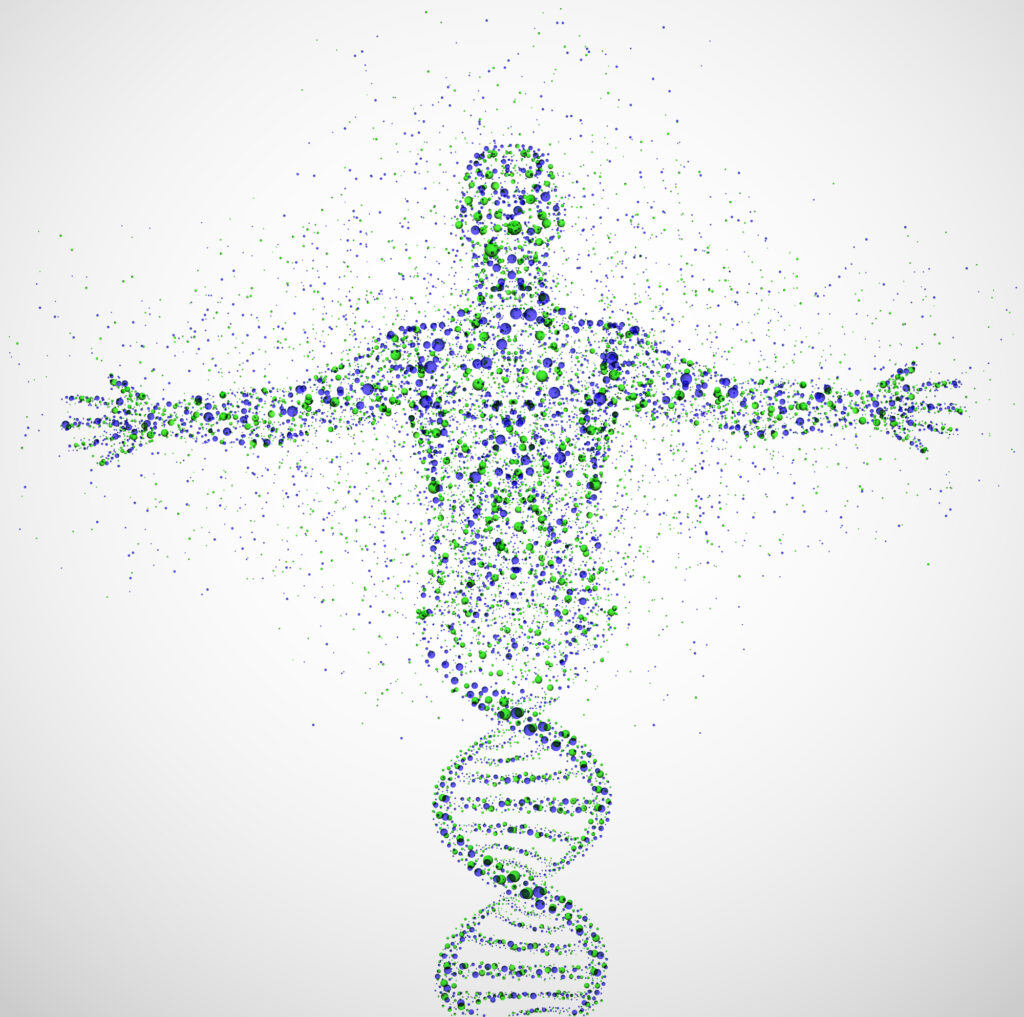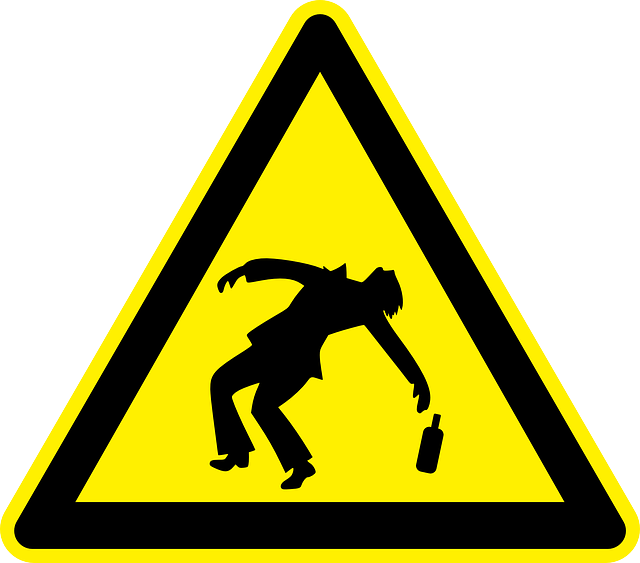Uncovering the Reasons Behind Alcohol Addiction – Why Is Alcohol Addictive?
Have you ever wondered why some people can enjoy a drink or two without any issues, while others struggle with alcohol addiction? The reasons behind “why is alcohol addictive” are complex and multifaceted, involving a combination of factors that include brain chemistry, genetics, environment, and mental health. In this article, we will take a deep dive into the world of alcohol addiction, uncovering the reasons behind its development and providing valuable insights into recognizing and treating this devastating condition.
Key Takeaways
- Alcohol addiction is caused by increased production of dopamine and endorphins, which can lead to impulse control issues.
- Genetic factors, environmental influences and mental health disorders are all contributing factors to the risk of developing an alcohol use disorder.
- Seeking professional help for alcohol addiction is necessary in order to successfully recover from AUD. This includes inpatient/outpatient programs, behavioral therapies & aftercare support.
The Science Behind Alcohol Addiction

Alcohol addiction is a result of its effects on the brain and body when people drink alcohol, leading to an increase in dopamine and endorphin production. These brain chemicals are responsible for the pleasurable sensations associated with alcohol consumption, making alcohol a highly addictive substance.
Our exploration of the science behind alcohol addiction includes a discussion on dopamine, endorphins, and the influence of alcohol on impulse control and decision-making.
The Role of Dopamine in Alcohol Addiction
Dopamine plays a pivotal role in alcohol addiction by activating the brain’s reward center and emphasizing drinking alcohol, an addictive substance, as necessary for survival. When the brain’s reward center is activated, it reinforces the behavior of consuming alcohol, making it increasingly difficult for individuals to resist the temptation to drink. This is why some people seem to have a greater susceptibility to alcohol addiction than others.
During the early stages of alcohol use disorder, seeking treatment at an addiction treatment center can be highly beneficial. Many people recognize the harmful effects alcohol can have on their health and that of their loved ones. Seeking help during these early stages can prevent those consequences from occurring. Comprehending dopamine’s role in alcohol addiction enables individuals to make well-informed decisions about their drinking habits and seek assistance when required.
Endorphins and Alcohol Consumption
Endorphins, like dopamine, play a significant role in alcohol addiction. These natural painkillers are released during alcohol consumption, leading to pleasurable sensations that can contribute to individuals becoming addicted to alcohol. The release of endorphins is one of the reasons why people drink alcohol – it makes them feel good, at least temporarily.
However, the more endorphins that are released, the more the brain craves the pleasurable feelings associated with alcohol consumption, creating a vicious cycle of addiction. Grasping the role of endorphins in alcohol addiction is key to understanding why certain individuals are more likely to develop alcohol use disorders.
Impact on Impulse Control and Decision-Making
Alcohol can have a detrimental effect on impulse control and decision-making, thus increasing the likelihood of relapse. One consequence of alcohol addiction is impaired impulse control, leading to impulsive and hazardous behaviors, which can be considered as alcohol misuse. Environmental factors, such as social influences and advertising, can also contribute to alcohol addiction by normalizing and promoting alcohol consumption.
Over time, heavy alcohol consumption has been shown to worsen anxiety. This can further exacerbate the cycle of addiction, as individuals may turn to alcohol as a coping mechanism for their anxiety. Grasping the influence of alcohol on impulse control and decision-making is critical for individuals aiming to overcome addiction.
Factors Contributing to Alcohol Addiction

Research suggests that genetics and environmental factors may both contribute to an individual’s risk of developing an addiction to alcohol. This section delves into the diverse factors contributing to alcohol addiction, encompassing genetic contributors, environmental influences, and mental health disorders.
Understanding these psychological factors allows for deeper comprehension of why some individuals are more prone to alcohol addiction than others.
Genetic Factors
Genetic factors play a significant role in alcohol addiction, accounting for approximately 50% of the risk for developing an alcohol use disorder. This is because genetic factors can influence the way in which alcohol interacts with the brain, particularly in terms of the release of pleasure chemicals. Individuals with a family history of alcohol use disorder have twice the risk of alcohol abuse and alcohol dependence than those without such a genetic tie.
It is important to recognize that although genetics play a role in alcohol addiction, environmental factors and personal choices also contribute to the development of alcohol use disorders. Comprehending the interaction between genetic and environmental factors empowers individuals to make informed decisions about their drinking habits and seek assistance when needed.
Environmental Influences
Environmental influences, such as social pressure and cultural norms, can also contribute to alcohol addiction. Research has shown that individuals can be prompted to drink more than they initially intended due to social influences, thereby creating a difficult situation for those attempting to break away from the addiction. Cultural factors, including the way alcohol is portrayed in the media and advertising, can further normalize and promote alcohol consumption, making it more difficult for individuals to recognize the signs of alcohol addiction.
Recognizing the impact of environmental factors on alcohol addiction and physical dependency enables individuals to mitigate these influences, perhaps by finding alcohol-free social activities or seeking support from sober friends and family.
Mental Health and Alcohol Addiction
It has been observed that approximately half of individuals with substance use disorders also experience co-occurring mental health disorders. Mental health disorders, such as anxiety and depression, are often linked to alcohol addiction, with individuals using alcohol as a coping mechanism for these conditions. This can create a vicious cycle, as alcohol consumption can worsen mental health symptoms, leading to further alcohol use to cope with the worsening symptoms.
Individuals with a dual diagnosis – the presence of both a mental health disorder and an alcohol use disorder – often require specialized treatment that addresses both conditions concurrently. Understanding the link between mental health and alcohol addiction allows individuals to seek suitable assistance and address the root causes of their addiction.
Recognizing Alcohol Use Disorder (AUD)

Recognizing the signs and symptoms of Alcohol Use Disorder (AUD) is crucial for seeking help and overcoming addiction. This section will look into the various indicators of AUD, which include warning signs, physical and psychological symptoms, along with the importance of seeking assistance when these signs emerge.
Warning Signs of AUD

Warning signs of AUD include prioritizing drinking, lack of control over consumption, and developing an alcohol tolerance. It is essential to be aware of these warning signs, as they can indicate the presence of an alcohol use disorder and the need for intervention and treatment.
Other indicators of AUD include:
- Hiding or lying about drinking habits
- Abusing alcohol even though it is having a detrimental impact on one’s life
- Needing to drink increasing amounts of alcohol to feel intoxicated
By identifying these warning signs, individuals can initiate steps to seek assistance and address their alcohol use disorder before it escalates.
Physical and Psychological Symptoms
Physical symptoms of AUD may include liver damage, gastrointestinal issues, cardiovascular problems, and a weakened immune system. Psychological symptoms associated with AUD may include depression, anxiety, irritability, mood swings, and impaired cognitive function. Recognizing these physical and psychological symptoms can help individuals and their loved ones identify the presence of an alcohol use disorder and seek appropriate help.
Notably, the presence of these symptoms doesn’t always denote an alcohol use disorder, but they could suggest a need for further assessment and intervention.
Seeking Help
Seeking help from addiction specialists and support groups is essential for overcoming AUD. Assistance for those suffering from AUD can be obtained through inpatient and outpatient programs, behavioral therapies, and relapse prevention. Support groups can provide a secure and encouraging environment for individuals to communicate their experiences and obtain support from others who are facing similar challenges.
Failure to receive treatment for AUD may result in serious physical and psychological health issues, including liver damage, depression, and anxiety. By recognizing the need for assistance and seeking appropriate support, individuals can embark on the journey towards recovery from chronic alcohol abuse and a healthier future.
Treatment Options for Alcohol Addiction

This section will examine the range of treatment options for alcohol addiction, including alcohol rehab:
- Inpatient programs
- Outpatient programs
- Behavioral therapies
- Aftercare support
Each individual’s needs and circumstances will vary, and it is important to choose the appropriate treatment option that best addresses their specific situation.
Inpatient and Outpatient Programs
Inpatient programs for alcohol addiction involve residing at a treatment facility for a specified period, usually ranging from a few weeks to several months. These programs offer intensive, continuous care and support, including detoxification, therapy, counseling, and medical supervision. Outpatient programs, on the other hand, allow individuals to receive treatment while living at home and continuing with their daily obligations. Outpatient programs generally involve scheduled therapy sessions, counseling, support groups, and medication management.
The decision between inpatient and outpatient programs should be based on the individual’s requirements, the intensity of the addiction, and their personal situation. Both types of programs aim to assist individuals in managing their alcohol addiction and working towards a healthier and more fulfilling life.
Behavioral Therapies and Relapse Prevention
Behavioral therapies and relapse prevention strategies are designed to assist individuals in cultivating healthy coping mechanisms and establishing a sober support system. These therapies can include cognitive-behavioral therapy, dialectical behavior therapy, and motivational interviewing, among others. Relapse prevention strategies may involve identifying triggers, managing cravings, and developing healthy coping skills to handle stress and difficult emotions without resorting to alcohol.
Through participation in behavioral therapies and implementation of relapse prevention strategies, individuals can establish a solid foundation for sustainable sobriety and minimize the risk of reverting to alcohol use.
Aftercare and Ongoing Support
Aftercare and ongoing support are crucial for maintaining long-term recovery from alcohol addiction. These services can include:
- Individual and group therapy
- 12-step programs
- Support groups
- Family therapy
These resources can provide individuals with the necessary support and guidance to help them remain abstinent and avoid relapse.
Having a reliable support system can also assist individuals in remaining motivated and accountable in their recovery process. Engaging in aftercare and ongoing support facilitates continued progress post-treatment and the maintenance of a fulfilling, alcohol-free life.
The Dangers of Binge Drinking and Abruptly Stopping Alcohol Consumption

This section will look into the hazards linked to binge drinking and the abrupt cessation of alcohol consumption. These behaviors can have severe consequences, including the development of AUD and dangerous withdrawal symptoms.
Defining Binge Drinking and Its Connection to AUD
Binge drinking is defined as consuming a large amount of alcohol in a short period, which results in a person’s blood alcohol concentration (BAC) reaching 0.08 g/dL or higher. Binge drinking is strongly correlated with the development of AUD, as it can lead to increased tolerance and dependence on alcohol.
The potential short-term and long-term risks associated with binge drinking include injury, death, and disease. Identifying the link between binge drinking and AUD can guide individuals in making well-informed decisions regarding their alcohol consumption and seeking assistance when required.
Risks of Sudden Alcohol Withdrawal
Abruptly stopping alcohol consumption can lead to severe withdrawal symptoms and even death. Some of the most serious withdrawal symptoms include:
- seizures
- delirium tremens
- Wernicke-Korsakoff syndrome
- neuropsychiatric complications
Quitting drinking abruptly can result in life-threatening complications, emphasizing the necessity of obtaining professional assistance for alcohol addiction.
Understanding the risks tied to sudden alcohol withdrawal empowers individuals to take necessary precautions and seek professional assistance for a safe and effective recovery from addiction.
Alcohol addiction is a complex issue that involves a combination of factors, including brain chemistry, genetics, environment, and mental health. Recognizing the signs and symptoms of AUD is crucial for seeking help and overcoming addiction. Various treatment options are available to address alcohol addiction, including inpatient and outpatient programs, behavioral therapies, and aftercare support. By understanding the dangers of binge drinking and abruptly stopping alcohol consumption, individuals can make more informed decisions about their alcohol use and seek appropriate help when needed.
Together, we can work to increase awareness and understanding of alcohol addiction and promote healthier lifestyles free from the destructive grip of alcohol.
Frequently Asked Questions
Why do humans crave alcohol?
Humans crave alcohol due to its ability to induce euphoria, relaxation and disinhibition. Consumption activates the brain’s reward circuitry, allowing external cues and alcohol-related thoughts to be paired with experiences of alcohol reward via conditioning. Furthermore, alcohol floods our brain with reward chemicals like dopamine, which is why memory can trigger craving long after our last drink.
How addictive is alcohol?
Alcohol produces a feeling of euphoria and numbing negative feelings, making it extremely addictive. Studies show that 1 in 12 Americans suffer from alcohol use disorder, highlighting just how addictive this substance can be.
What role do genetic factors play in alcohol addiction?
Genetic factors can contribute to alcohol addiction by impacting the body’s reaction to alcohol, leading to an increased risk of physical dependency.
How does alcohol addiction impact impulse control?
Alcohol addiction can significantly weaken impulse control, causing individuals to act on their impulses in potentially dangerous ways. This can lead to alcohol misuse and other negative consequences.
What are the potential risks of sudden alcohol withdrawal?
Sudden alcohol withdrawal can potentially cause severe health risks including seizures, delirium tremens, Wernicke-Korsakoff syndrome, and neuropsychiatric complications.
If you’re looking for addiction treatment or mental health providers that offer outpatient and/or inpatient treatment options, look no further than It’s Time For Rehab to help you find the center best suited to match your needs and desires in a treatment solution – visit https://itstimeforrehab.com/


